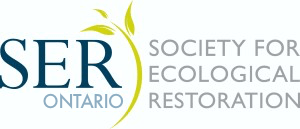Certification Program for Ecological Restoration Practitioners
SER is excited to announce the Certified Ecological Restoration Practitioner Program (CERP)! This program will certify qualified ecological restoration practitioners (and practitioners-in-training). Certification will be based on a combination of:
- Knowledge base (there will be a grandfathering clause during the first 5-year cycle)
- Professional-level experience
- References
- Review and agreement with SER’s ethics and disciplinary policies
- Successful completion of SER e-learning course (estimated at ~90 minutes) on the foundations of ecological restoration
www.ser.org/page/Certification
CONTINUING EDUCATION CREDITS:
Certified Ecological Restoration Practitioners (CERPs) and Certified Ecological Restoration Practitioners in Training (CERPITs) can be recertified by earning a minimum of 50 continuing education credits (CECs) within the five-year period since they were last: certified, recertified, or upgraded from CERPIT to CERP status. A minimum of five CECs must be earned in each year.
- Completion of college-level continuing education coursework: 1 hour of classroom instruction/attendance = 1 CEC
- Attendance or instruction of specialized training (e.g., short courses, workshops, field tours, webinars): 1 hour of attendance = 1 CEC
- Attendance at conference sessions and symposia: 2 hours of attendance = 1 CEC
- Preparation of publications, technical documents, or educational materials:
- Book = 10 CECs
- Book chapter = 5 CECs
- Peer-reviewed publication = 5 CECs
- Other educational materials = 1 CEC
- Completion of leadership roles in SER, SER chapters, or SER/chapter activities: Board member = 5 CECs/year
- Committee member= 3 CECs/year
- Organizing SER or SER chapter events = 2 CECs/event
- Completion of volunteer service for a not-for-profit organization, focusing on ecological restoration-related activities
4 contact hours = 1 CEC

